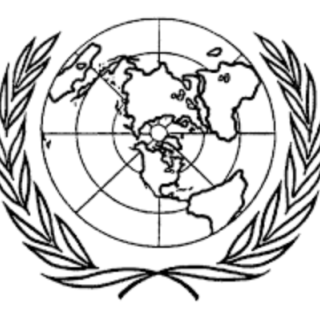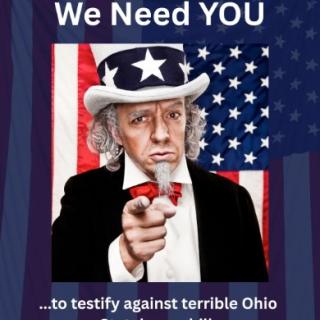This article first appeared on World Beyond War
The Nobel Committee has frequently given the peace prize to major war makers, and frequently to do-gooders whose work in a variety of fields has been unrelated to abolishing war. It has also often given the prize to opponents and victims of Western empire. But it has never given the prize to open advocates of war and fascistic government. Trump was never going to be given the prize directly.
Trump is not the right type of warmonger. Nobody could do it with a straight face. Zelensky was saying he’d support Trump for the peace prize if Trump were to send him long-range missiles with which to start World War III. Norway has been worried about what horrible things Trump might do upon failing to be given the prize. Trump has pushed NATO members into unprecedented levels of military spending, while fueling wars in Ukraine and Palestine, supporting Israeli warmaking around Western Asia, murdering the occupants of fishing boats and declaring his right to attack Venezuela, and proclaiming his intention to practice for more wars using U.S. cities as training grounds. The Nobel Committee could not risk having him show up to accept its peace prize and denounce them for having some non-“white” people in the room or for having given the prize to someone he hates.
But the Nobel Committee did the next best thing, and must be hoping in vain that Trump manages to understand that. It gave the prize to an opponent of "the Venezuelan regime" and practically insisted on the Trumpian overthrow and takeover of Venezuela in the name of "democracy." María Corina Machado may be a perfectly wonderful person. Her rights may have been horribly abused. The Venezuelan government, like most, may be deeply flawed. But only the slightest pretense was even made on Friday that Machado had anything to do with the cause for which the Nobel peace prize had been created. Instead, the presentation focused on demonizing the government of Venezuela. The drug-cartel excuse was missing. The oil explanation was missing. (Machado wants to privatize Venezuela's oil for capitalist profiteers.) There was no direct advocacy for an invasion. But "democracy" was championed as having no greater hurdle before it than the existence of the current president of Venezuela. Machado has supported deadly sanctions against her own country and advocated for intervention.
Last year, the prize was a rare one in that it was actually related to peace. Hypocrisy and obliviousness are the norms. Alfred Nobel’s will, written in 1895, left funding for a prize to be awarded to “the person who shall have done the most or the best work for fraternity between nations, for the abolition or reduction of standing armies and for the holding and promotion of peace congresses.” No mention was made of Machado having done any of those things at all.
Most winners in recent years have either been people who did nice things that had nothing whatsoever to do with the relevant work (Kailash Satyarthi and Malala Yousafzai for promoting education, Liu Xiaobo for protesting in China, Intergovernmental Panel on Climate Change (IPCC) and Albert Arnold (Al) Gore Jr. for opposing climate change, Muhammad Yunus and Grameen Bank for economic development, etc.) or people who actually engaged in militarism and would have opposed the abolition or reduction of standing armies if asked, and one of whom said so in his acceptance speech (the European Union, Barack Obama, etc.). Of course, Henry Kissinger is remembered as a Nobel Peace laureate, while Gandhi never measured up.
The Nobel Committee outraged Trump because it gave the prize to U.S. President Barack Obama who, after delivering the only pro-war Nobel Peace Prize acceptance speech ever, went to Hiroshima and told everyone there, including the survivors of the nuclear bombs who would later get the prize, that nuclear weapons would not be eliminated in his lifetime. He then proceeded to peddle familiar pro-war myths.
Two years ago the Nobel Committee awarded a peace prize that had Iran in the role of Venezuela. Since then, we have seen Iran bombed and threatened by the upholders of Western civilization.
There is no question that advocating for human rights is a good thing, or that doing so under an oppressive government is a courageous thing, or that doing so without hypocritically using violence is a wise thing. But the Nobel Peace Prize was created to support war abolition, not a random selection of good issue advocacy. And the practice of selectively awarding the prize to victims of the governments targeted by the U.S. military supports, rather than reduces, militarism.
Of the most oppressive governments on Earth, there are only a few not armed, trained, and supplied by the U.S. military, and only one with which the U.S. government had recently torn up an agreement that stalled the drive toward war in Washington.
The recipient of the 2023 prize, Narges Mohammadi, like her colleague and previous recipient Shirin Ebadi, opposed both abuses by the Iranian government and sanctions and threats of war from the U.S. government. But the awarding of the prize did not serve peace, and only strengthened senseless global division. Everyone knows that no Western political journalist prisoner, such as Julian Assange, would ever be given such a prize.
In 2022, with its eyes on the news of the day, there was no question that the Committee would find some way to focus on Ukraine. But it steered clear of anyone seeking to reduce the risk of the at-the-time relatively minor war escalating or creating a nuclear apocalypse. It avoided anyone opposing both sides of the war, or anyone advocating for a ceasefire or negotiations or disarmament. It did not even make the choice one might have expected of picking an opponent of Russian warmaking in Russia and an opponent of Ukrainian warmaking in Ukraine. Instead, the Nobel Committee chose advocates for human rights and democracy in Belarus, Russia, and Ukraine. But the group in Ukraine was recognized for having “engaged in efforts to identify and document Russian war crimes against the Ukrainian civilian population,” with no mention of war as a crime or of the possibility that the Ukrainian side of the war was committing atrocities. The Nobel Committee may have learned from Amnesty International’s experience of being widely denounced for documenting war crimes by the Ukrainian side.
In 2021 the prize went to advocates for human rights in Russia and in the Philippines. In 2020 the prize went to the World Food Programme. In 2019 the prize went to the President of Ethiopia and claimed some relationship to peace as he had been part of a peace agreement. But he was a president and commander of a military and not in any need of funding or support. He had engaged in all sorts of violence and human rights abuses, so that an advocate for human rights in his country could be given the prize if the U.S. government’s relationship to that country changes.
The 2018 prize did not go after war itself, but did go after sexual violence in wars. Not bad, relatively speaking. The 2013 prize went after chemical weapons. But stretching back through the years, we see a common practice of most often awarding a peace prize to either actual warmakers or to advocates for good causes that are not peace, as well as the practice of using the prize for Western political purposes that are hostile to peace. Although virtually every topic can be tangentially connected to war and peace, the avoidance of actual peace activism intentionally misses the point of the prize’s creation by Alfred Nobel and the influence of Bertha von Suttner.
The Nobel Peace Prize has largely devolved into a prize for random good things that don’t offend a culture dedicated to endless war. It has been awarded for journalism, for working against hunger, for protecting children’s rights or women’s rights, for teaching about climate change, and for opposing poverty. These are all good causes and can all be connected to war and peace. But these causes should go find their own prizes.
The Nobel Peace Prize is so devoted to awarding powerful officials and avoiding peace activism that it is often awarded to the wagers of wars, including Abiy Ahmed, Juan Manuel Santos, the European Union, and Barack Obama, among others. At times the prize has gone to opponents of some aspect of war, advancing the idea of reforming even while maintaining the institution of war. These awards have come closest to the purpose for which the prize was created, and include the 2017, 2018, and 2024 prizes.
The prize has also been used to advance the propaganda of some of the world’s major war makers. Awards like that of 2023 have been used to denounce violations of human rights in non-Western nations targeted in the weapons-funding propaganda of Western nations. This record allows Western media outlets each year to speculate before the prize announcement on whether it will go to favorite propaganda topics, such as Alexei Navalny. The awarding of the prize has done nothing in recent years to diminish warmaking, and has perhaps done the opposite, with prizes going to opponents of the Russian government prior to escalations of the war in Ukraine.
In 2021, at a moment when the world’s largest weapons dealer, most frequent launcher of wars, dominant deployer of troops to foreign bases, greatest enemy of the International Criminal Court and the rule of law in international affairs, and supporter of oppressive governments — the U.S. government — was trumpeting a division between so-called democracies and non-democracies, the Nobel Committee chose to throw gas on the fire, declaring:
“Since its start-up in 1993, Novaja Gazeta has published critical articles on subjects ranging from corruption, police violence, unlawful arrests, electoral fraud and ‘troll factories’ to the use of Russian military forces both within and outside Russia. Novaja Gazeta’s opponents have responded with harassment, threats, violence, and murder.”
Also given the prize that year was a journalist from the Philippines already funded by CNN and by the U.S. government, in fact by a U.S. government agency often involved in funding military coups.
That there are always numerous candidates who plausibly meet the criteria of Alfred Nobel’s will each year and could have been appropriately awarded a Nobel Peace Prize has been established by the late great Norwegian peace activist Fredrik Heffermehl and by the War Abolisher Awards. World BEYOND War has created the War Abolisher Awards to fill the gap left by the Nobel Committee’s frequent abandonment of the cause of ending war.




